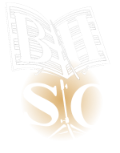Rossini: The Italian Girl in Algiers
Rossini was born in 1792 in Pesaro, Italy and died in France in 1868. Amongst other works he was a prolific writer of operas, both tragic and comic. He wrote thirty-nine in less than twenty years, becoming one of the most successful and popular operatic composers of his time. The Italian Girl in Algiers (L’Italiana … Read more

